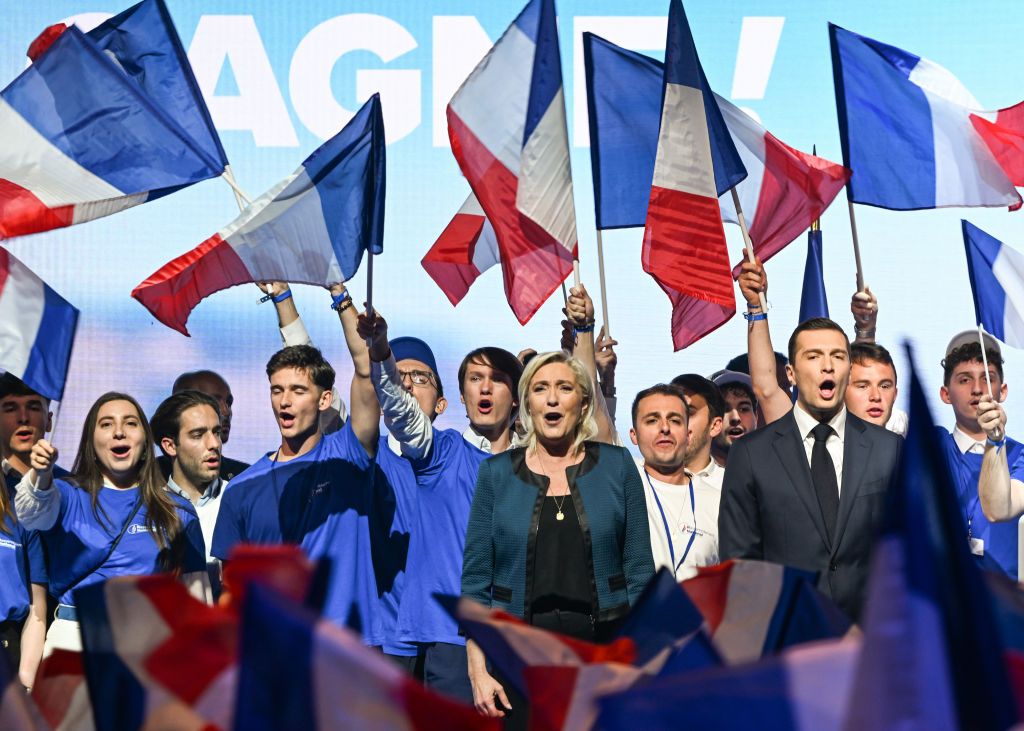Support independent journalism in Ukraine. Join the fight.
Become a member Support us just once
Ukraine will need vast amounts of money to defeat Russia and rebuild after the war, far more than Western voters and politicians can or will provide. The good news is that a huge amount of non-Western money is already there: $300 billion in frozen Russian sovereign assets stored in Western jurisdictions. The bad news is that the West has not been able to agree on a common plan of action to leverage these assets.
Freezing the Russian stockpiles could tip the balance of the war in Ukraine's favor and significantly reduce the financial burden on Western taxpayers, but those opposed to seizing the stockpiles fail to understand the harsh economic reality: current levels of Western aid are simply not conducive to a Ukrainian victory.
Western funding just to keep Ukraine in the war currently amounts to roughly $100 billion a year, or about $8.5 billion a month. But for Ukraine to pose a serious challenge to Russia, the West would need to increase this spending to nearly $150 billion a year, or about $12.5 billion a month. These were the levels of spending in mid-2023, when Ukraine was gaining the upper hand. But by late 2023, spending had fallen to $4 billion a month, and bills providing additional aid had stalled in the U.S. Congress, costing Ukraine lives, territory, and momentum.
Opinion: Ukraine rushes to boost domestic defense production
Just a month after the US Congress approved a long-awaited aid package for Ukraine, US Secretary of State Antony Blinken visited Kiev, sending a clear message that Washington stands by the embattled country amid ongoing political strife and election campaigns. Blinken also made special…

Should we really expect Western governments to extract an additional $50 billion a year from their taxpayers to fund Ukraine? What if Donald Trump wins the US presidential election this year and the current US funding (about $45 billion a year) dries up? Europe will be neither willing nor able to make up an even larger funding gap of $95 billion a year. But opponents of seizing Russian assets have not offered any alternatives, nor have they mentioned the consequences of not funding Ukraine.
Make no mistake: Ukraine’s defeat would come at much higher social, political and economic costs to Europe in the form of huge refugee influxes, increased security risks and hundreds of billions of dollars in increased annual defense spending to counter the threat of Russian aggression.
Those opposed to confiscation of Russian assets are not being honest with their own taxpayers about the reality of burden-sharing. An accurate description of the current situation is that Western taxpayers are bearing the full burden of the war, while Russian taxpayers' assets are protected. This is morally wrong and politically unacceptable. But opponents offer a number of flimsy arguments for why confiscation is unfeasible.
The claim that it is illegal has been widely refuted by legal experts who say that such moves are permitted under international law. Other arguments relate to economic risks, which also do not stand up to scrutiny. For example, it is said that seizing Russian assets could lead to the authoritarian regime withdrawing its reserves from the West, undermining the reserve currency status of the dollar and the euro.
But how realistic is this scenario? By freezing $300 billion worth of Russian assets in February 2022, the West has already made those funds unavailable to the Russian central bank, and the terms of return are unlikely to be accepted by Russia. In this case, there is little practical difference between “freezing” and “confiscation.”
Moreover, recall that emerging market governments' response to this virtual seizure two years ago was inaction. Even if countries like China and Saudi Arabia wanted to move their assets elsewhere, how would they do it? There is a reason that emerging markets hold trillions of dollars of Western assets: there is no alternative to G7 currencies and markets that can offer the same liquidity and safety.
Yet if governments were to move assets, they would face devastating consequences as global markets would be destabilized, inviting retaliation in the form of Western sanctions and flight to the euro and dollar. China and Saudi Arabia will never just walk the talk, because they both know that doing so would slow global growth, reduce trade and investment, lower oil and commodity prices, and hurt their own economies. We know that these regimes value stability above all else. Why ruin your own country just to prop up Russian President Putin?
Opinion: Europe faces three options to counter the rise of the far-right
Far-right populist parties performed exceptionally well in the European Parliament elections, coming in first in France, Italy and three other countries. Far-right populist parties won nearly a quarter of the seats, second only to the centre-right. With Europe already reeling from Russia's war in Ukraine…

Opponents of confiscation also argue that confiscation would subject Western assets in Russia to retaliation, but the Russian government has already forced these assets to be sold to Kremlin allies at rock-bottom prices and imposed punitive taxes on Western companies. Moreover, Western assets in Russia are dwarfed by Russian assets in the West, and there is no justification for Western taxpayers to bail out Western companies that have made bad business investments.
While the seizure of Russian assets carries many unrealistic or exaggerated risks, one thing needs to be taken seriously: the G7 must act in unison. Otherwise, authoritarian regimes may choose to divide and rule Western reserve currencies. The shift from the dollar to the euro (or any other currency) should not be considered an effective defense against asset freezing and seizure. If a liquid alternative to the dollar were allowed in any G7 jurisdiction, a drain on reserves would be a real danger.
The choice is clear: unless all frozen Russian assets are confiscated and given to Ukraine, Ukraine will lose the war and the West will have to pay much more. There is no logical alternative to asset confiscation. The G7 leaders should stop making excuses and being bad with their own taxpayers and just do it.
Editor's note: Copyright belongs to Project Syndicate. This article was published by Project Syndicate on June 12, 2024 and has been republished by Kyiv Independent with permission. Opinions expressed in editorial sections are those of the author and do not necessarily reflect the views of Kyiv Independent.

Timothy Ash
Chatham House Associate Research Fellow
Timothy Ash is an associate fellow in the Russia and Eurasia Programme at Chatham House and Emerging Markets Sovereign Strategist at BlueBay Asset Management. Read more



